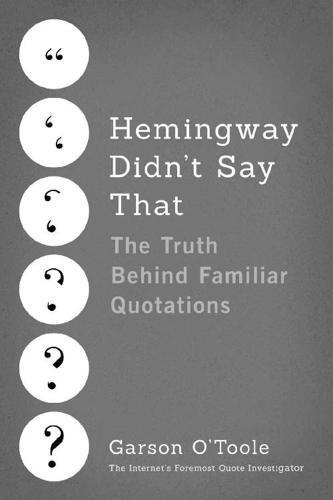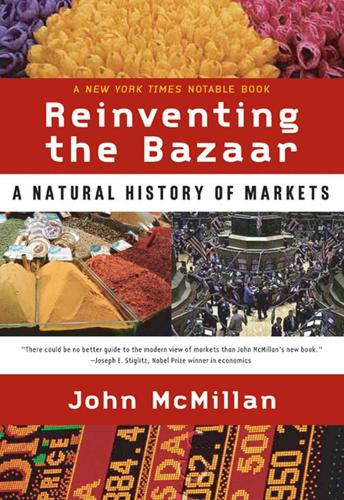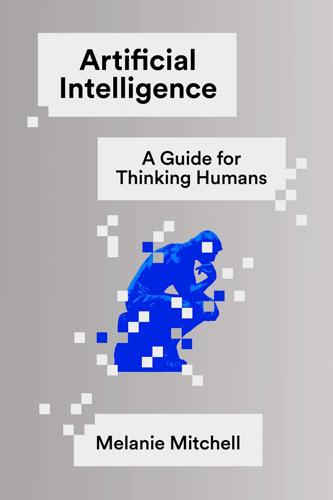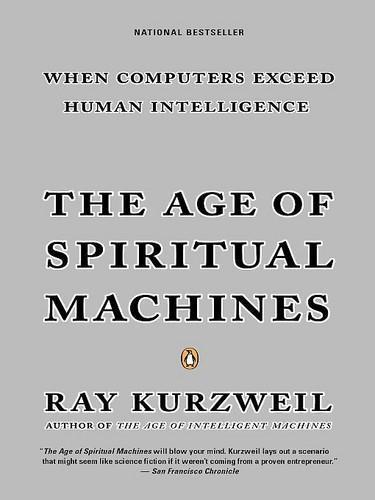
Hemingway Didn't Say That: The Truth Behind Familiar Quotations
by
Garson O'Toole
Published 1 Apr 2017
This date is often paired with the remark now:9 “Computers in the future may weigh no more than 1.5 tons.” —Popular Mechanics, forecasting the relentless march of science, 1949 “We don’t like their sound, and guitar music is on the way out.” —Decca Recording Co. rejecting the Beatles, 1962 “640K ought to be enough for anybody.” —Bill Gates, 1981 In 1996, as discussed earlier, Gates denied that he made the remark. He also questioned the existence of any solid reference for the statement:10 Meanwhile, I keep bumping into that silly quotation attributed to me that says 640K of memory is enough. There’s never a citation; the quotation just floats like a rumor, repeated again and again.
…
The quotation credited to Gates was given further circulation by the 1998 book The Experts Speak: The Definitive Compendium of Authoritative Misinformation, where it appeared with a footnote justification. However, the footnote simply pointed to the 1995 Washington Post article mentioned above:11 640K ought to be enough for anybody. —Remark attributed to Bill Gates (Founder and CEO of Microsoft), 1981 QI feels the evidence linking this quotation to Bill Gates is mixed. The first-known citation occurred in 1985, despite the claim that the comment was made in 1981. Indeed, there does not appear to be any direct support for the 1981 date beyond the fact that IBM introduced the PC in that year.

Reinventing the Bazaar: A Natural History of Markets
by
John McMillan
Published 1 Jan 2002
In 1954, John von Neumann, the mathematical genius who helped invent the computer, said, “I think there is a world market for maybe five computers.” In 1977, Ken Olson, president of Digital Equipment Corp., said, “There is no reason anyone would want a computer in their home.” In 1981, Bill Gates, founder of Microsoft, is reported to have said, “640K ought to be enough for anybody.” Businesspeople are as prone to forecasting error as anyone else. In a market economy, though, many such forecasts, some right, some wrong, are being acted on simultaneously. Monopolizing economic decision-making in a planning agency, by contrast, means restricting the number of paths that get explored.

Artificial Intelligence: A Guide for Thinking Humans
by
Melanie Mitchell
Published 14 Oct 2019
Here are a few examples. IBM’s chairman, Thomas J. Watson, in 1943: “I think there is a world market for maybe five computers.” Digital Equipment Corporation’s cofounder Ken Olsen in 1977: “There’s no reason for individuals to have a computer in their home.” Bill Gates in 1981: “640,000 bytes of memory ought to be enough for anybody.”39 Hofstadter, having been stung by his own wrong predictions on computer chess, was hesitant to dismiss Kurzweil’s ideas out of hand, as crazy as they sounded. “Like Deep Blue’s defeat of Kasparov, it certainly gives one pause for thought.”40 Wagering on the Turing Test As a career choice, “futurist” is nice work if you can get it.

The Age of Spiritual Machines: When Computers Exceed Human Intelligence
by
Ray Kurzweil
Published 31 Dec 1998
—Popular Mechanics, 1949 “It would appear that we have reached the limits of what is possible to achieve with computer technology, although one should be careful with such statements, as they tend to sound pretty silly in five years.” —John von Neumann, 1949 “There’s no reason for individuals to have a computer in their home.” —Ken Olson, 1977 “640,000 bytes of memory ought to be enough for anybody.” —Bill Gates, 1981 “Long before the year 2000, the entire antiquated structure of college degrees, majors and credits will be a shambles.” —Alvin Toffler “The Internet will catastrophically collapse in 1996.” —Robert Metcalfe (inventor of Ethernet), who, in 1997, ate his words (literally) in front of an audience Now I get to toot my own horn, and can share with you those predictions of mine that worked out particularly well.

Gravity's Rainbow
by
Thomas Pynchon
Published 15 Jan 2000
But this time Crutchfield only turns back to watching the distant mountains. Whappo sulks. His top hat reflects the coming holocaust. What the white man does not have to utter, however casually, is anything like "Toro Rojo's gonna be riding in tonight." Both pardners know about that. The wind, bringing them down that raw Injun smell, ought to be enough for anybody. Oh God it's gonna be a shootout and bloody as hell. The wind will be blowing so hard blood will glaze on the north sides of the trees. The redskin'll have a dog with him, the only Indian dog in these whole ashen plains—the cur will mix it up with little Whappo and end hung on the meathook of an open meat stall in the dirt plaza back in Los Madrés, eyes wide open, mangy coat still intact, black fleas hopping against the sunlit mortar and stone of the church wall across the square, blood darkened and crusting at the lesion in his neck where Whappo's teeth severed his jugular (and maybe some tendons, for the head dangles to one side).